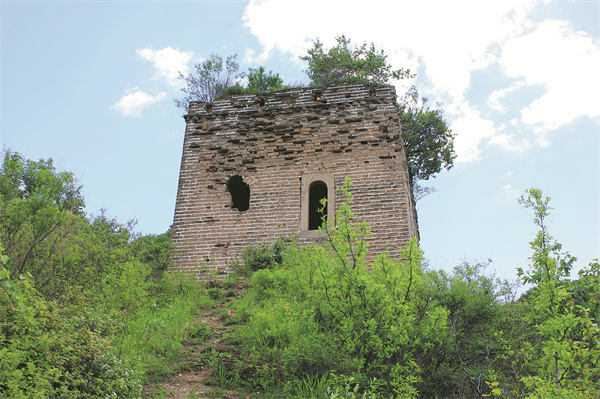Defending the Wall, honoring the heroes
Farmer's resolve and dedication reminds people of the great wartime spirit and resilience of the nation, report Wang Qian and Zhang Yu.


Liang highlights the importance of protecting the Xifengkou pass, which embodies two monumental narratives — national resistance and selfless sacrifice for collective prosperity.
The jagged peaks of the Yanshan Mountains cradle Xifengkou pass, where the Great Wall plunges into the turquoise waters of the Panjiakou Reservoir. This convergence of natural grandeur and human bravery epitomizes the site's dual identity: a battleground that forged China's spirit of the broadswords in 1933, and a symbol of regional solidarity through the Luanhe River diversion project that submerged its ramparts decades later.
For 20-year-old Li Shuoyi, a student at Cangzhou Technical College in Cangzhou, Hebei province, visiting Xifengkou brought her a different feeling than what she had imagined.
"Perhaps because there were fewer people, unlike the more crowded, famous sections of the Great Wall, it gave me a relaxed feeling," Li says.
Liang echoes that challenges remain in raising awareness and getting people to visit Xifengkou. To better tell the stories behind it, he suggests promoting immersive experiences and merging its history with tourism elements.
Today, Zhang's mission continues. With nearly 200 million yuan ($27.87 million) invested to build it as part of the national Great Wall cultural park, Xifengkou's preservation is secure. A new exhibition hall is nearing completion, according to Zhang.
He still has a dream — a wall to commemorate the deceased heroes. Brick by brick, Zhang intends to build it and painstakingly carve the names of all 500 warriors, ensuring their sacrifice, like the pass they defended, endures against the tides of time.




































